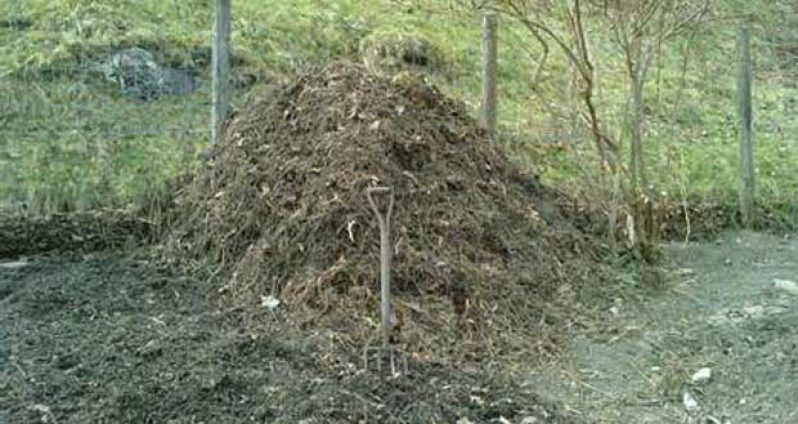Composting is a controlled decomposition process that converts organic materials such as leaves, kitchen scraps and garden waste into a valuable product called compost , or manure, as it is more better known locally.
When compost is mixed with soil in gardens, lawns and houseplants, it improves soil quality and results in healthier plants.It improves poor soils.
People have been composting for centuries and references to composting were recorded on clay tablets in Mesopotamia in 500 B.C.
An art and a science, composting is more like making soup than a cake.
There is no reason to put food waste and yard waste in the trash, you can easily compost it in your back yard..
WHAT DOES COMPOST LOOK LIKE:
Compost is dark brown or black in color, has a crumbly texture, is humus rich and smells like soil.
WHAT PLANTS BENEFIT FROM COMPOST
Seedlings, potted plants, garden and field crops, lawns and trees may all benefit from compost.
WHAT CAN BE COMPOSTED
Organic materials such as food scraps, food preparation residuals, food, soiled paper products, grass clippings, aquatic weeds, brush and tree trimmings comprise over 60% of our waste stream and can be recycled by composting.
Organics, such as spoilt fruits or vegetables, can be stored in a container until you are ready to add them to your compost pile.
Some people like to place organics in a bag or container in their freezer until they can take it out to a compost pile. Others re-use a plastic container with a lid or use a purchased compost kitchen container and keep it under their sink or on the kitchen counter.
The following are organic materials which can be added to your compost bin or make manure: leaves, grass clippings, sawdust from deciduous hard wood trees , aquatic weeds , vegetables and fruits, coffee grounds and filters, tea bags and tea leaves, twigs, egg shells and crustacean shells, paper rolls, toilet paper, newspapers, office paper, junk mail, envelopes, paper napkins and bags, cereal and pizza boxes, literally all paper products, nut shells, vacuum contents and floor sweepings, hay, straw, manure from rabbits, cows, horses, sheep or chickens, dregs from juice, beer and wine and male urine. (Not female)
WHAT MUST NOT BE COMPOSTED
There are several types of organic materials that should not go into compost piles.
These including the following:
Dog or cat faeces and litter and dirty diapers (These may contain parasites and pathogens); meat, fish, bones, fats, grease, lard, oils, eggs or dairy products such as butter milk, yogurt and sour cream. These create odors and attract rodents and flies.
The list also includes yard trimmings treated with chemical pesticides (these may kill beneficial composting organisms), diseased or insect infested plants ( the disease may survive and be transferred to other plants), weeds that have gone to seed, weeds with invasive roots such as duck weed, alligator weed or Bermuda grass, used facial or toilet tissue ( they may contain pathogens), charcoal ash or coal ( may contain substances harmful to plants), lime (can cause smelly ammonia gas releases and leave the compost with less nitrogen, pressure-treated lumber, pressed wood and plywood(these contain toxics), heavily coated paper (magazines, catalogs, wrapping paper, greeting cards with metallic links or photographs.
(To be continued)
SO WHAT IS COMPOSTING?
SHARE THIS ARTICLE :
Facebook
Twitter
WhatsApp












